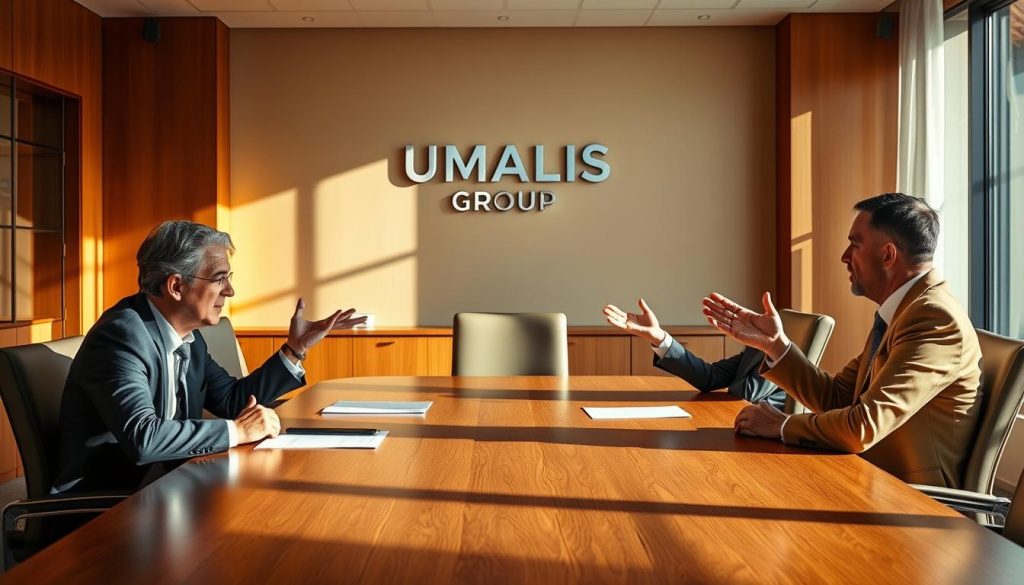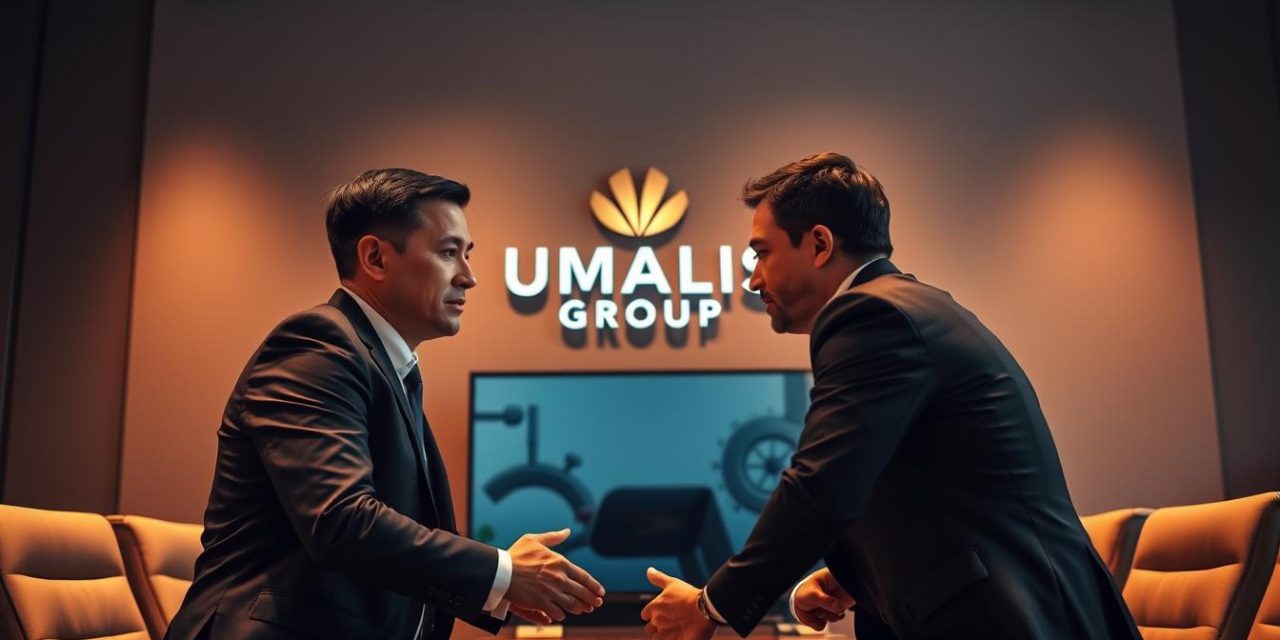In today’s fast-paced business world, the ability to negotiate effectively is crucial for both freelancers and employed professionals. Negotiation skills are not just about winning; they’re about creating value and reaching a mutually beneficial agreement.
Effective negotiation is a structured process that can be learned and mastered with training and practice. It’s a universal tool that applies to various aspects of life, from professional settings to everyday situations.
By mastering negotiation skills, professionals can reap numerous benefits, including career advancement and increased earnings.
Table of Contents
Key Takeaways
- Negotiation skills are essential for career advancement.
- Effective negotiation creates mutual value.
- Negotiation skills can be learned through training.
- Negotiation applies to both business and everyday life.
- Mastering negotiation skills leads to numerous benefits.
The Power of Effective Negotiation in Professional Success
Negotiation is not just about winning; it’s about creating value for all parties involved. According to Harvard Business School Professor Michael Wheeler, « Enhancing your negotiation skills has an enormous payoff. » It allows professionals to reach agreements that might otherwise be out of reach and expand the pie to create more value.
Why Negotiation Skills Matter for Freelancers and Professionals
Negotiation skills are crucial for both freelancers and professionals. For freelancers, effective negotiation can directly impact income potential through better rate-setting and contract terms. Professionals in traditional employment can benefit from negotiation skills when discussing promotions, raises, and new opportunities. Effective negotiation creates value beyond monetary terms, including better working conditions and clearer expectations.
- Negotiation skills help in achieving better contract terms and rates.
- Professionals can leverage negotiation for promotions and raises.
- Effective negotiation leads to better working conditions.
The Impact of Negotiation on Career Growth and Business Relationships
Effective negotiation not only enhances career growth but also fosters stronger business relationships. Respectful and effective negotiators build stronger networks and can prevent conflicts before they escalate. By creating value and ensuring that all parties benefit, negotiators can establish trust and improve their professional reputation.
- Negotiation skills contribute to stronger business networks.
- Effective negotiators can prevent and resolve conflicts.
- Negotiation enhances professional reputation and trust.
Understanding the Negotiation Process

Understanding the negotiation process can significantly enhance one’s ability to achieve successful agreements. Negotiation is a multifaceted process that involves several stages, each critical to reaching an effective agreement. By breaking down the negotiation process into distinct phases, individuals can better prepare and execute their negotiation strategies.
The Five Stages of Successful Negotiation
The negotiation process typically unfolds through five distinct stages: preparation and research, discussion and information exchange, proposal and bargaining, agreement and closing, and implementation and follow-up.
Preparation and Research
Preparation is key to successful negotiation. This stage involves researching the other party, setting clear goals, and developing a Best Alternative to a Negotiated Agreement (BATNA). Effective preparation enables negotiators to anticipate challenges and craft strategies to address them.
Discussion and Information Exchange
During the discussion phase, effective communication and active listening are crucial. This stage involves exchanging information, clarifying interests, and establishing a foundation for further negotiation.
Proposal and Bargaining
The proposal and bargaining stage involves making offers, responding to counteroffers, and finding common ground. Negotiators must be adept at making concessions and creative in finding solutions that satisfy both parties.
Agreement and Closing
Once an agreement is reached, it’s essential to finalize terms and document the agreement clearly. Ensuring that all parties understand their obligations is critical to a successful outcome.
Implementation and Follow-up
The often-overlooked stage of implementation and follow-up is vital to ensure that agreements are honored. Proper monitoring and follow-up can prevent misunderstandings and strengthen the relationship between parties.
Different Types of Negotiation Approaches
Negotiation can take various forms, including collaborative, competitive, and compromise-based approaches. Collaborative negotiation focuses on maximizing mutual benefits, competitive negotiation centers on allocating finite resources, and compromise-based negotiation involves mutual concessions to reach an equitable agreement.
Understanding the negotiation approach used by the other party is crucial for responding strategically. Professionals and freelancers must be adaptable, adjusting their negotiation process based on the context, stakes, and relationship dynamics.
10 Essential Negotiation Skills for Professional Success

Developing negotiation skills can significantly impact a professional’s ability to secure favorable outcomes. Negotiation is an art that requires a combination of skills to achieve successful results. In this section, we will explore the essential negotiation skills that professionals need to succeed.
Communication and Active Listening
Effective communication and active listening are critical negotiation skills. Verbal clarity, non-verbal awareness, and the ability to listen attentively are vital for understanding the other party’s needs and preferences. By doing so, negotiators can tailor their approach to meet the needs of both parties, fostering a collaborative environment.
Emotional Intelligence and Strategic Empathy
Emotional intelligence plays a significant role in negotiations, enabling negotiators to understand and manage their emotions, as well as empathize with the other party. Strategic empathy involves comprehending the needs and perspectives of the other negotiator, adapting the negotiation strategy to build trust and mutual understanding.
Preparation and BATNA Development
Adequate preparation is essential for successful negotiation. This includes developing a strong BATNA (Best Alternative to a Negotiated Agreement), researching the other party, and setting clear objectives with flexibility. A well-prepared negotiator can navigate complex situations effectively.
Value Creation and Win-Win Thinking
Value creation strategies help expand opportunities rather than just dividing existing resources. Focusing on win-win outcomes enables negotiators to find mutually beneficial solutions, strengthening business relationships and fostering long-term success.
Strategic Questioning and Information Gathering
Strategic questioning is a valuable negotiation skill that involves eliciting useful information without revealing too much about one’s own position or priorities. Effective information gathering enables negotiators to make informed decisions and adapt their strategy accordingly.
Additional essential negotiation skills include patience and timing, creativity and problem-solving, assertiveness balanced with flexibility, building and maintaining rapport, and maintaining focus on long-term goals. By mastering these skills, professionals can significantly enhance their negotiation abilities and achieve greater success in their careers.
Proven Negotiation Techniques for Freelancers
The ability to negotiate effectively is essential for freelancers who aim to establish strong, lasting relationships with their clients. By mastering negotiation techniques, freelancers can better navigate the complexities of their profession, ensuring successful project outcomes and a stable career.

The Harvard Method: Principled Negotiation
The Harvard Method, also known as principled negotiation, emphasizes the importance of separating people from the problem, focusing on interests rather than positions, generating options for mutual gain, and using objective criteria. This method encourages collaborative solutions and open dialogue, helping to achieve mutually beneficial agreements.
By applying the Harvard Method, freelancers can effectively manage negotiations by:
- Separating people from problems: Avoiding personal biases and emotions to focus on the issue at hand.
- Focusing on interests not positions: Understanding the underlying needs and desires of both parties.
- Generating options for mutual gain: Creating solutions that benefit both the freelancer and the client.
- Using objective criteria: Relying on industry standards and facts to support negotiation decisions.
SPIN Technique for Understanding Client Needs
The SPIN technique is a valuable tool for freelancers to understand client needs by identifying their Situation, Problems, Implications, and Needs. This technique allows freelancers to tailor their negotiation strategy and present targeted solutions that address the client’s specific requirements.
To implement the SPIN technique:
- Situation: Understand the client’s current situation and context.
- Problem: Identify the specific problems or challenges the client is facing.
- Implication: Explore the implications of these problems on the client’s business or project.
- Need: Determine the client’s needs and priorities.
Multiple Equivalent Simultaneous Offers (MESOs)
Multiple Equivalent Simultaneous Offers (MESOs) is a negotiation strategy where freelancers present several equivalent offers simultaneously. This approach provides clients with choices while allowing freelancers to maintain their bottom line.
When using MESOs, it’s essential to:
- Prepare multiple offers that are equivalent in value.
- Present these offers simultaneously to the client.
- Ask for feedback on the offers and be prepared to adjust based on client preferences.
By incorporating these negotiation techniques into their practice, freelancers can enhance their negotiation skills, improve client relationships, and achieve better outcomes in their projects.
Practical Negotiation Scenarios for Professionals
Negotiation skills are essential for navigating different professional situations, from salary negotiations to resolving client conflicts. Professionals often face various negotiation scenarios that can significantly impact their careers and business relationships.
Salary and Rate Negotiations
When it comes to salary and rate negotiations, preparation is key. Researching market standards, understanding your worth, and timing your negotiation appropriately can lead to more successful outcomes.
Contract Terms and Conditions
Negotiating contract terms and conditions goes beyond just payment terms. It’s crucial to focus on other clauses such as deliverables, deadlines, and termination conditions.
Resolving Conflicts with Clients and Colleagues
Conflict resolution through negotiation is vital for maintaining positive relationships with clients and colleagues. Active listening and empathy can help resolve disputes effectively.
Conclusion: Developing Your Negotiation Mastery
As we conclude our exploration of negotiation skills, it’s clear that mastering negotiation is a journey, not a destination. Throughout this article, we’ve covered essential skills and techniques that are crucial for negotiation success, including effective communication, emotional intelligence, and strategic preparation.
To further develop your negotiation mastery, we encourage you to view negotiation as an ongoing learning process. Create a personal development plan that includes specific resources, training, and practice opportunities. This will help you build confidence in low-stakes situations before applying your skills in critical professional scenarios.
Remember, strong negotiation skills can transform your career advancement, income growth, and professional satisfaction. We invite you to reflect on your current strengths and weaknesses as a starting point for improvement and to implement at least one new negotiation technique in your next professional interaction.
FAQ
What are the most effective negotiation techniques for achieving a successful outcome?
Effective negotiation techniques include principled negotiation, active listening, and strategic questioning. These methods help parties find common ground and reach a mutually beneficial agreement.
How can I improve my negotiation process to achieve better results?
To improve your negotiation process, focus on thorough preparation, including researching the other party’s needs and developing a strong BATNA. This enables you to negotiate from a position of strength and achieve a more favorable outcome.
What role does communication play in successful negotiation?
Communication is crucial in negotiation, as it enables parties to understand each other’s needs and interests. Effective communication involves active listening, clear expression of your goals, and strategic questioning to gather information.
How can I effectively negotiate salary and benefits as a freelancer or professional?
To effectively negotiate salary and benefits, research the market rate for your services, clearly articulate your value proposition, and be prepared to discuss your needs and expectations.
What are some common negotiation tactics that I should be aware of?
Common negotiation tactics include anchoring, bundling, and making multiple equivalent simultaneous offers (MESOs). Being aware of these tactics can help you prepare and respond effectively during a negotiation.
How can I build trust during a negotiation?
Building trust during a negotiation involves being transparent, actively listening to the other party, and demonstrating a willingness to find mutually beneficial solutions.
What is the importance of preparation in negotiation?
Preparation is essential in negotiation, as it enables you to understand the other party’s needs, develop a strong BATNA, and negotiate from a position of strength.
How can I handle conflict during a negotiation?
To handle conflict during a negotiation, remain calm, focus on the issues rather than personal attacks, and seek to understand the other party’s underlying interests and needs.





